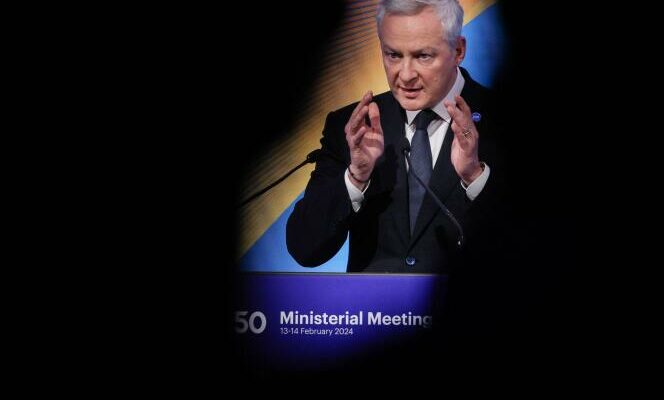At the start of 2024, the Minister of the Economy, Bruno Le Maire, took up his pilgrim’s staff again, hoping to bring the subject of control of public finances back into the debate, and make it a subject of sovereignty. Like in 2023 and 2022. “The hardest part is ahead of us”, he repeated during his greetings to economic players in Bercy on January 8. In his administration, the race against time has begun.
Thus, on Sunday February 18, the minister committed to achieving “10 billion in immediate savings” on the state budget, an additional measure all the more urgent according to Bercy as expenses have multiplied since January, such as the 400 million euros released for farmers, bonuses of up to 1,900 euros for the police and gendarmes on the occasion of the Olympic Games, or the up to 3 billion euros promised to Ukraine.
Most of the savings will be made on the cessation of crisis measures, and on the budget of ministries and state operators, these public or private organizations to which a public service mission is entrusted. Beyond that, a few areas have been identified, such as learning aid, reductions in the burden on low wages or medical deductibles.
This measure is in addition to the 12 billion euros in savings that the government has committed to finding for the 2025 finance bill. But the slowdown, against a backdrop of persistent inflation and rising rates, has also forces Bercy to revise its estimates for 2024, reducing its gross domestic product (GDP) growth forecast from 1.4% to 1% for 2024. “ There is a cyclical break at the start of the yearobserves Ludovic Subran, chief economist at Allianz. All economic indicators point to a slowdown. People see that prices are not coming down and are worried about a real estate crisis. » For the economist, the “Faust pact” between the State and companies, at the end of which the latter have undertaken to maintain employment in exchange for public money, will crack as aid is withdrawn.
Steady progress
This slowdown in activity threatens the objectives of the President of the Republic, Emmanuel Macron, who is committed to achieving full employment in 2027. His ideological matrix is in fact based on GDP growth to create wealth and employment, which will then increase tax and social revenues making it possible to rebalance the accounts. In the short term, however, the judge of the peace in matters of public finances is not so much the rating that the agencies will give to France, or even the European Commission, as the markets themselves, whose appetite for French debt shows no signs of weakening. At least for now. “Emmanuel Macron knows how financial markets workadds Ludovic Subran. He knows that there are savings to invest and that there are investors to buy French debt. »
You have 36.63% of this article left to read. The rest is reserved for subscribers.
